Dear Friends:
I’m back with another ‘My Dalitality’ newsletter after a prolonged break. This issue will cover 2024 updates from July to October. I was in Africa for two months–Kenya, Ethiopia, South Africa, and Rwanda. I had a thrilling driving experience from Cape Town to Johannesburg, covering many fabulous places, clocking 2,600 km in seven days. It was a fun and learning experience. In South Africa, I spent about a week in the Kruger National Park. Walking with rangers in the wild and seeing a pack of hungry hyenas sizing us up to seeing a Lion hunting Kudu, all this sounds unreal, but we were lucky.
The hyena is curious. We had very good rangers at Kruger National Park.
I promise to upload the videos on my YouTube channel. For now, sharing from the Kruger National Park Railways is now a piece of relic and recreation. You can watch the video here.
in my African attire. The clothes are sewn in Kigali. The hat, stick and belt are from Nairobi inspired by the Masai colours, footwear from India.
I was very excited to witness this work of art by Riyas Komu. It had been on my list for quite some time. Komu’s work to install Ambedkar on the African soil corresponds to the work of Dilip Menon at Wits University. You can hear my review of this work here.
This is me with the amazing world experts on health and policy at the Lancet Commission meeting not far from Ambedkar’s statue.
Let’s start first with glimpses from my recent visit to the United Nations headquarters in Geneva. The External Affiars minister of India had posted about Dr Ambedkar's lifesize statue in the newly renovated building of Indian missions at the UN. I was in Geneva to attend a World Health Organization Conference.
with the Director General of WHO, Dr. Tedros Adhanom Ghebreyesus.
with the Ambedkar bust at UN Office, Geneva
Dalitality
July
I watched the first debate between Trump and Biden. Biden totally lost it. Trump mocked him without mocking him. Trump won without winning. I ruminate about the American election cycle and what it would hold in years to come.
As I wrote earlier this summer,
“Bernie Sanders endorsed Biden in an op-ed in the New York Times. While the endorsement was like a lifeline for the Biden poll panel, one can certainly reckon that he himself is ready to call it quits. Two candidates could win the baton — Vice-President, Kamala Harris, and Michigan Governor Gretchen Whitmer. We cannot say for sure what the future holds, as we prepare for the next couple of months to decide the fate of this messy economy that is in the hands of leaders with bureaucrats who are hated by the Republican vote bank and an autocratic leader with the impulse control of a toddler.”
You can access the complete article here.
Mayukh Devdas, in his article for the July edition of Dalitality, argues,
‘Digital inequalities may remain purposefully unnoticed and unaddressed by focusing on closing gaps in digital token access, which has become the sole yardstick for measuring digital inequality. Consequently, the inequality in digital participation and advancement may be misattributed to the cognitive inability, incapacity, or even perceived laziness of the Dalits, rather than the systemic myopia of the State and social institutions.
Dalits, who have been economically, socially and mentally pushed towards the margins of society for generations, need to be prepared to leverage digital resources through policy, educational, and scholarly initiatives.”
Read the complete piece here.
August
I was invited to deliver a keynote at a migrant labourer's conference in Kenya. I learned a great deal about the organisational activities and movements taking shape around the world. the migrant workers formed a new body to tackle injustices impacting their lives. Funded by US-based charities, these initiatives were a great source of admiration.
While in Kenya, I was driven by the cause of the Gen-Z and their protests against the Kenyan government. This resembled the state of many post-colonial nations. As I write in the article,
“The story of Kenya’s independence, especially the Mau Mau episode, is not a widely accepted phenomenon among a section of its people, who consider it a land issue that had no effect on regions outside the Central and Rift Valley areas.
The post-colonial promise set a path of wealth creation opportunities for subsequent generations but that path and its true nature was forever hidden since the unification of the nation demanded priority. Kenya has 43 tribes and barring recent entrants who are not ethnically African, the others have a strong form of identity.
Usually, power is centred around the five dominant tribes who have formed into unique castes of their own — the Kikuyu, Kalenjin, Luo, Luhya, and Kamba people. There is nostalgia among post-colonial elites to direct attention to the colonial state as the reason for their current malaise. While partly true, it also invites us to hold to account the power that still lies with capital-owning groups running the world through banks located in former colonies.”
You can read the complete article here.
Milind Awad, in his piece, debates the recent Supreme Court nod to apportion sub-classification among the Dalits in the reservation distribution. Awad argues,
“creamy-layer sub-categorisation that excludes economically secure members of the SC/ST community cannot be used as a form of differentiation for the latter to continue to face discrimination.”
You can access the article here.
Publications
I was invited to contribute to a special collection on, Inequality What is to Done curated by Niels Planel for Sens Editions “Social Classes of Global Castes”. This issue is specifically targeted to the policymakers at G20. I argue in this piece:
Presently, the major focus of caste is rooted in the religious dominion of relations. Te absence of commonality built on the dominance of insulted dependability makes the caste system a manifestation of society’s rigid and unscrupulous desires. Beyond the religious and social undertaking of this hierarchical system, caste legitimizes the ownership of resources held by one group at the expense of the other. It is done through arbitrary social laws, and cultural dictates praised as tradition.
You can read the complete piece here.
Mexican historian Jesus Cháirez-Garza’s new book, Rethinking Untouchability The Political Thought of BR Ambedkar, contextualises Ambedkar. I review this for the Hindustan Times. The review reads as follows:
I first met Cháirez-Garza when he was a DPhil student at Cambridge University presenting his thesis on Ambedkar in the decades leading up to independence. His historical enquiry impressed me. His scholarship was interesting as he hoped to bring in new dimensions like Franz Boas’s theory of untouchability to the internationalisation of untouchability. I have researched and written about the latter topic. Some of the chapters in this book, which is a collection of Cháirez-Garza’s essays published over the past decade, deal with the same subject.
The author contextualises Ambedkar within a larger political arena bereft of a foundational vibrancy from which the forces of the Scheduled Castes could draw. In this sense, this volume participates in the long discussions of the social history of Empire led by DN Ahir, Chris Bayly, Shekhar Bandyopadhyay, Saurabh Dube, Faisal Devji and Shruti Kapila. The footprint of that historical formula is present throughout.”
Read the complete review here.
Continuing the reviews, I also looked at Sandro Galea’s book, Within Reason: A Liberal Public Health For An Illiberal Time, on public health’s liberal paradigm. Galea's premise is the rise of certain attitudinal changes that harm the liberal framework necessary for public health. You can read the complete review here.
Media Profiles
Curator and journalist Meenakshi Shedde penned an article on my work and me in ‘Mid-day’.
She writes,
Moreover, Dr Yengde has hopes for Dalit women’s movements and quotes Roja Singh’s study of rural Dalit women in Tamil Nadu: “in their poetry and their expressions of ‘singing bodies and dancing minds,’ universalist humanist values shine through the dark chambers of societal caste pressures,” he writes. Jai Bhim! Jai Savitribai!
Discussions
Watch my discussion on ‘Exceptionalism & Oppression: Revisioning Caste’ with a Panel arranged by GBH Forum Network here.
Distinguished Lecture Series
As you may know, I have launched six distinguished lecture series in association with the Paine Phule Foundation.
Brazilian anthropologist Jose Jorge de Carvalho delivered the first Sukhadeo Thorat Distinguished Lecture on Education & Policy. His topic was “Quotas in Brazil An Ambedkarite Assessment of the Social Problems in Latin America”. You can watch the complete lecture here.
“Anand Teltumbde Distinguished Lecture on Political Economy” was delivered by economist & author of ‘Capital in the Twenty-First Century’ Thomas Piketty. Watch the complete lecture here.
Media Panels
Watch my appearance on NDTV here discussing caste equations in Haryana before their state elections.
Dr. Suraj Yengde, on the ‘Times Now’ panel, argues that Sub-classification isn't limited to SC/ST categories; it's often viewed in binary terms. The coverage is available here.
“Mayawati has herself called out against the hypocritical faith and follow a rationalist path, Dr. Suraj Yengde on India Today Panel.” Watch the coverage here.
My Vlogs
While in Africa, I made a few vlogs. You can watch them here.
Watch a tour of Harvard University and its Library in a new vlog by Dr Suraj.
Other Features
Professor Shailaja Paik is selected as a "Genius” MacArthur Fellow for her research on issues pertaining to Dalit life understood through the intersections of caste, sex, and gender. This is the most recognisable event that has happened to Dalits in America since the pandemic. Paik has charted the path and given us the direction. We celebrate her achievement and congratulate her for this extraordinary feat. You can read her interview here and a video about her here.
The City of Melbourne becomes the second Australian city to ban caste discrimination after Monash. Read the complete coverage here.
As we are on it, please read this article published in the Guardian by Oxford scholar Asang Wankhede. Along with Doctors Ajay Niranjane and Vaibhav Gaikwad, Wankhede conducted a massive country-wide study in Australia examining caste. He reports in the article:
Through in-person interviews with 146 Dalits across major Australian cities, I encountered horrific stories where children and adults alike experienced discrimination based on their caste identity in schools, universities and workplaces. This included instances of physical assault, threats of sexual assault and usage of casteist slurs on the other.
You can read it here.
An interesting take by D Raja of the Communist Party of India (CPI) on sub-classification & creamy layer. You can access it here.
M.P. Chandrashekhar Aazad introduced a bill for SC, ST and OBC reservations in the private sector. Watch the coverage here.
MP Thol. Thirumavalavan files review petition against Supreme Court’s judgement on sub-classification of scheduled castes. Read the news here.
Quoting African-American icon Marian Anderson, Karnataka court convicts 101 people for violence against Dalits” read a headline. In August 2014, three Dalit houses were torched by caste miscreants. The Karnataka district court convicted 117 people, eleven of those died during the trial. Read the complete article here.
Read a brilliant summary of subaltern studies collective the memory, project, politics & legacy of Ranajit Guha, who I call the Gandalf of radical thought of the 70s, by Milinda Banerjee here.
In History
July
17 July: First Dalit President, K. R. Narayan, was elected
17 July: Birth Anniversary of famous Dalit poet – Baburao Ramaji Bagul
18 July: Death Anniversary of Annabhau Sathe
20 July: Bahishkrit Hitakarini Sabha Foundation Day
22 July: Swami Achhutanand’s Death Anniversary
25 July: Death Anniversary of Phoolan Devi
31 July: Death Anniversary of Shaheed Udham Singh (Freedom fighter and Dalit from Punjab)
August
1 August: Birth Anniversary of Annabhau Sathe
3 August: Dr. B. R. Ambedkar was appointed as the first Law Minister of India
10 August: Birth Anniversary of Phoolan Devi
20 August: Birth Anniversary of Narayana Guru
28 August: Birth Anniversary of Ayyankali
September
17 September: Birth Anniversary of EVR Periyar
20 September: Death Anniversary of Narayana Guru
24 September: Satyashodhank Samaj was founded by Jotiba Phule
24 September: The Poona Pact was signed
Things to look out for
Celebrations/Announcements
I am honoured to be elected as the President of the Oxford History Graduate Network, 2024-25.
Recent Events
8 July: Kanshi Ram’s Praxis: From Victims of Brahminism to Victors of Democracy | Speaker: M Gopinath | Moderator: Suraj Yengde and Prashant Ingole
30 August: FRANCODALITALITE: The Unknown History of French Indian Dalits| Speaker: Ari Gautier| Moderator: Suraj Yengde
19 September: Global Inequality & Redistribution – A Comparative and Historical Perspective| Speaker: Thomas Piketty | Mederator: Suraj Yengde
until we meet, soon.
#JaiBhim #DalitLove
suraj



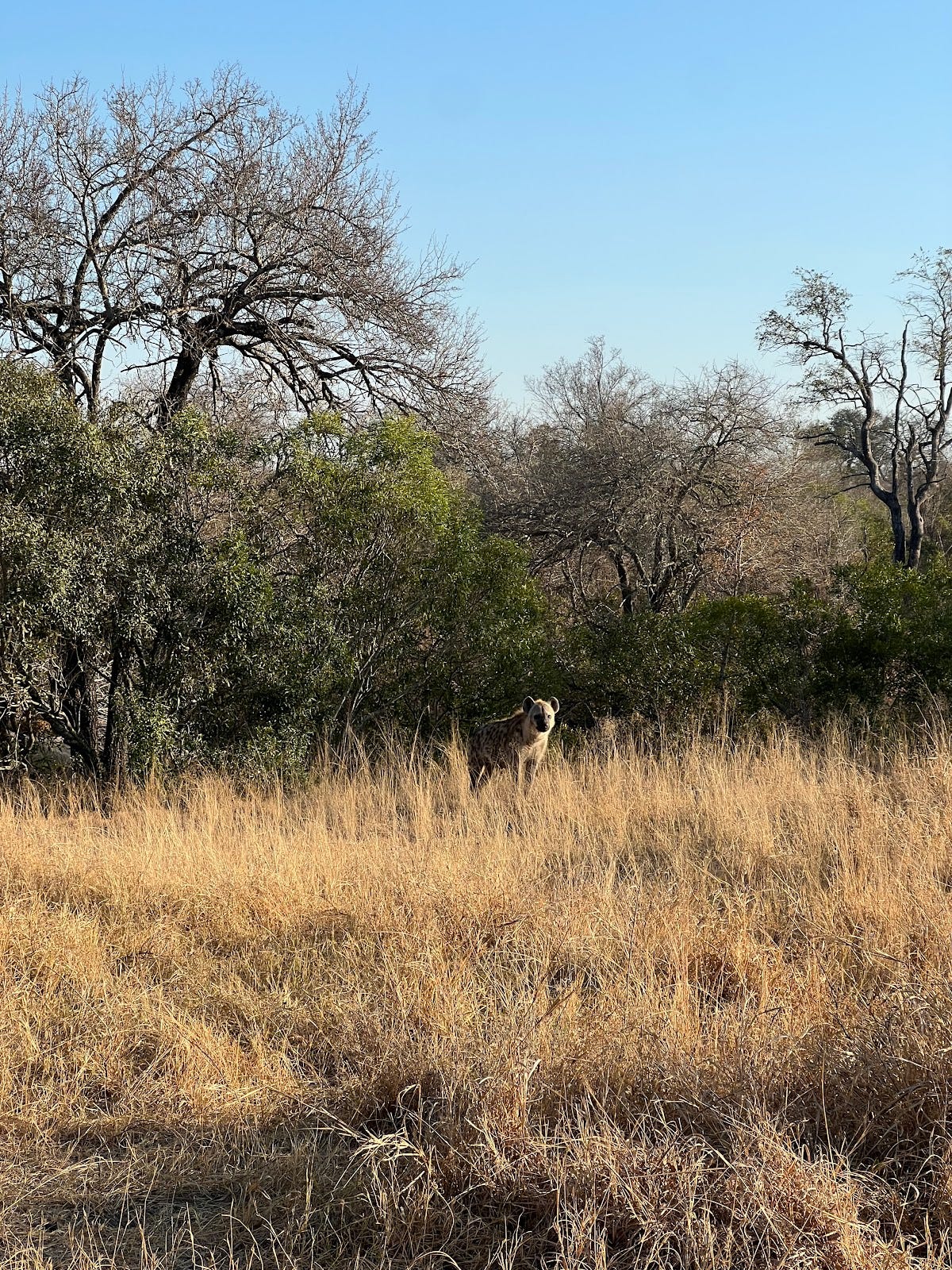
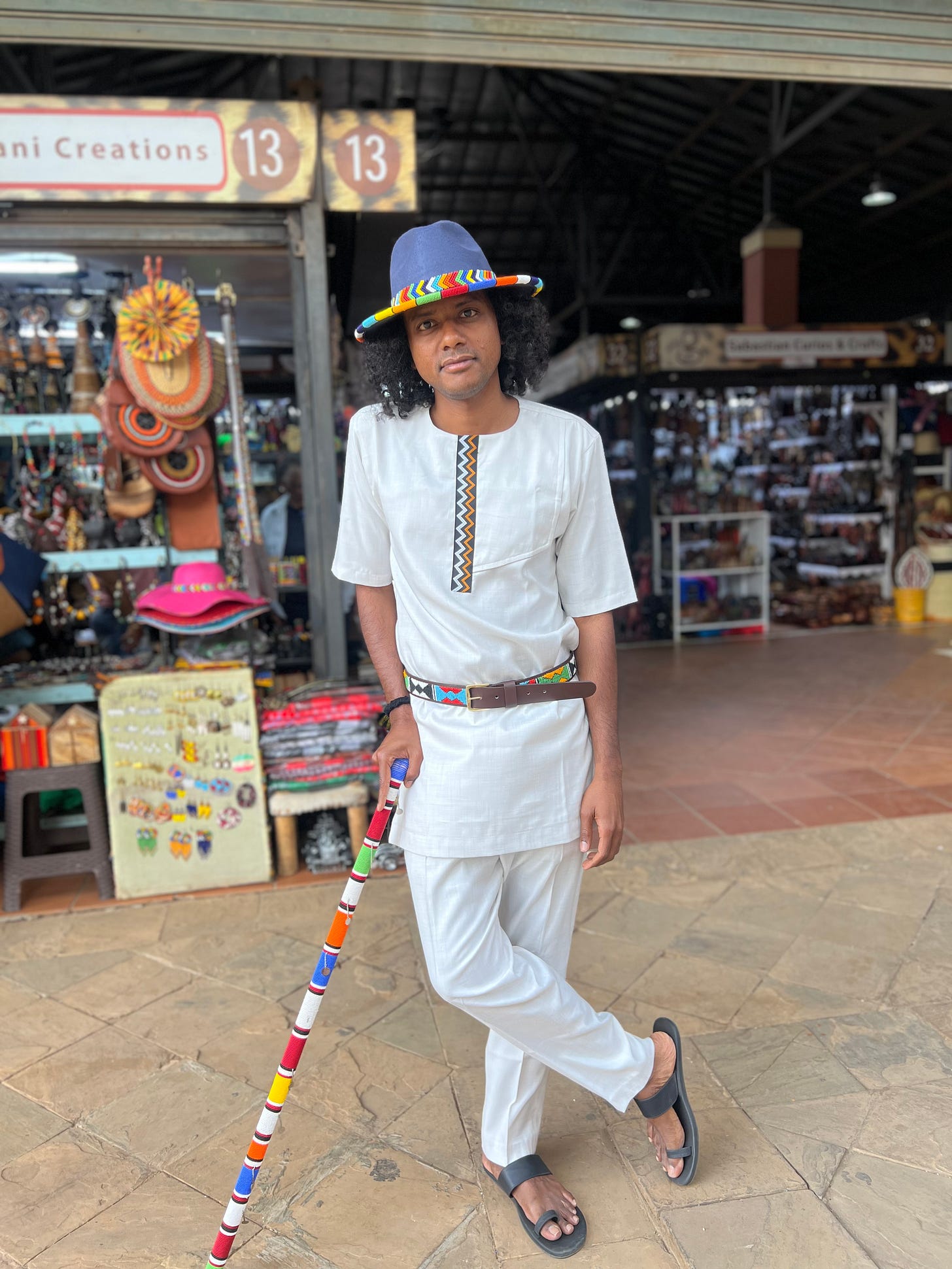
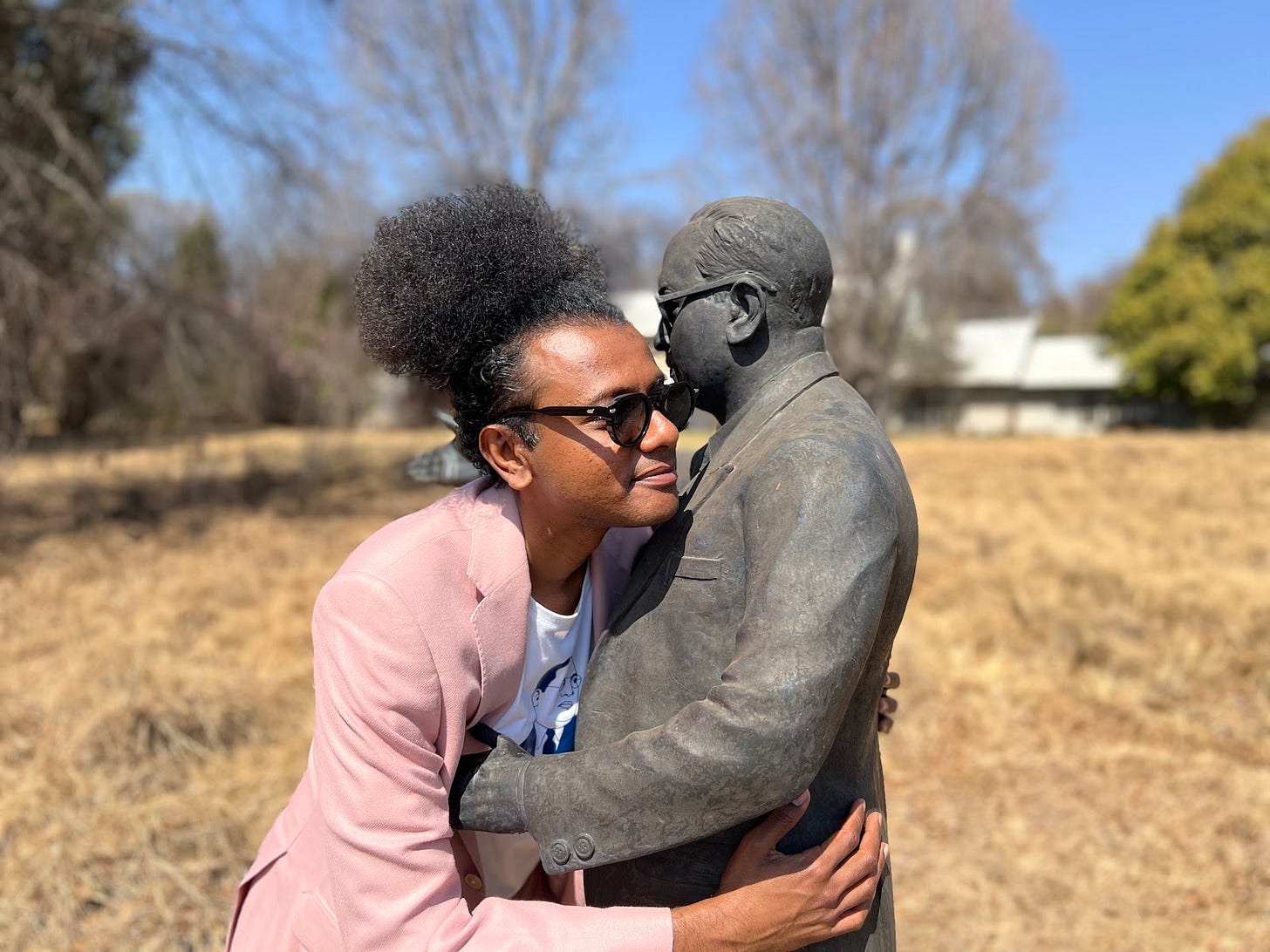
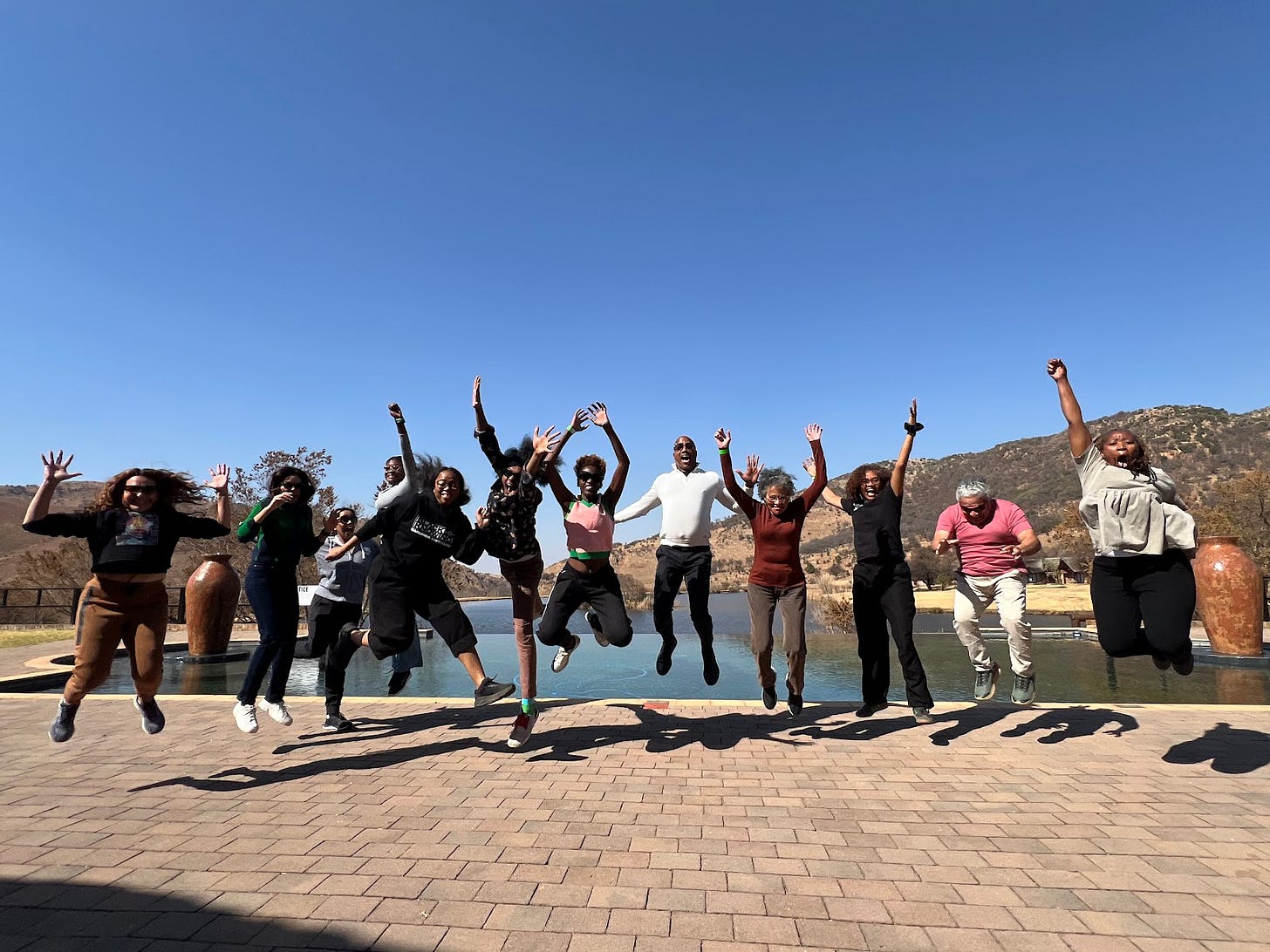
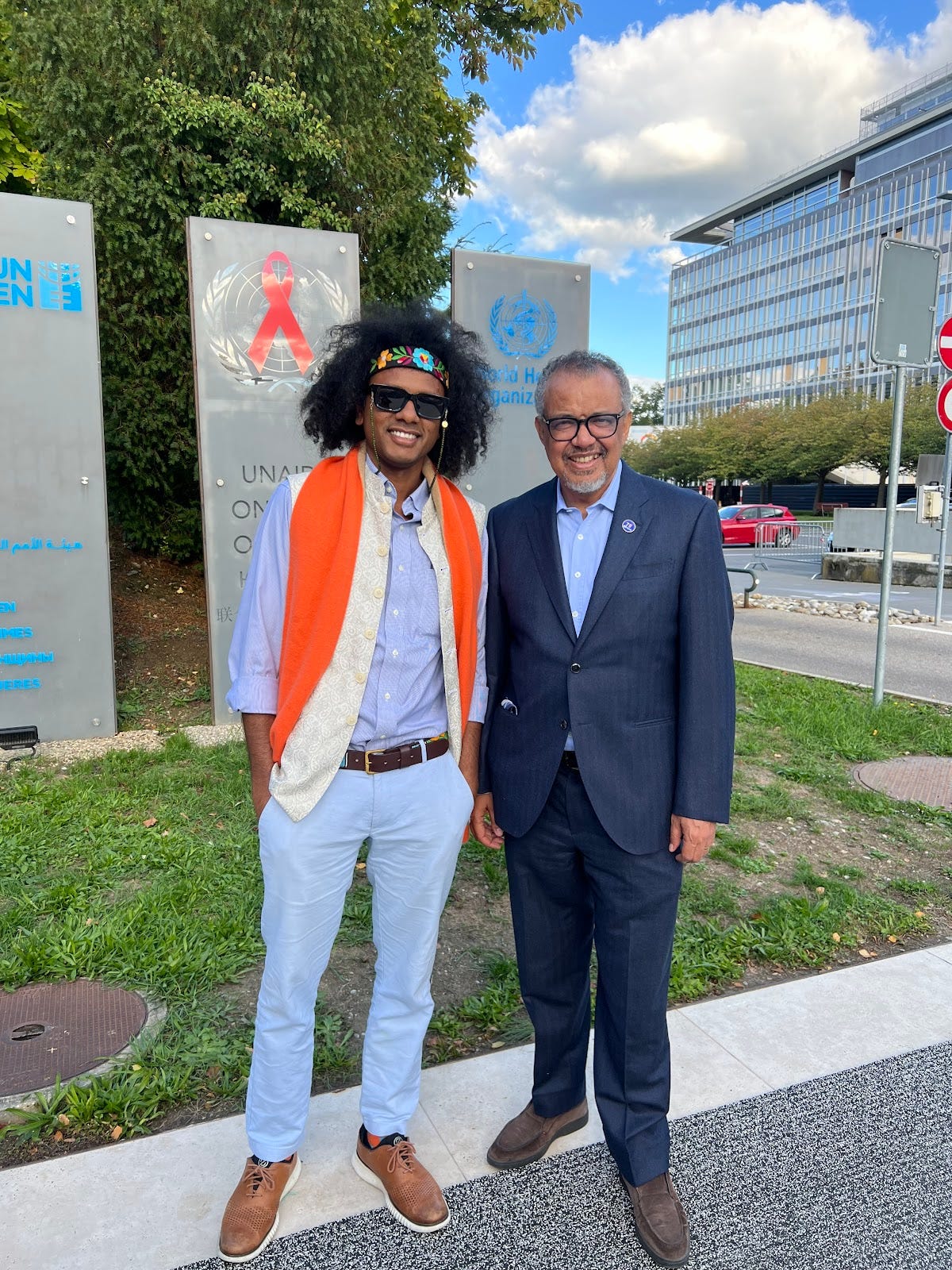
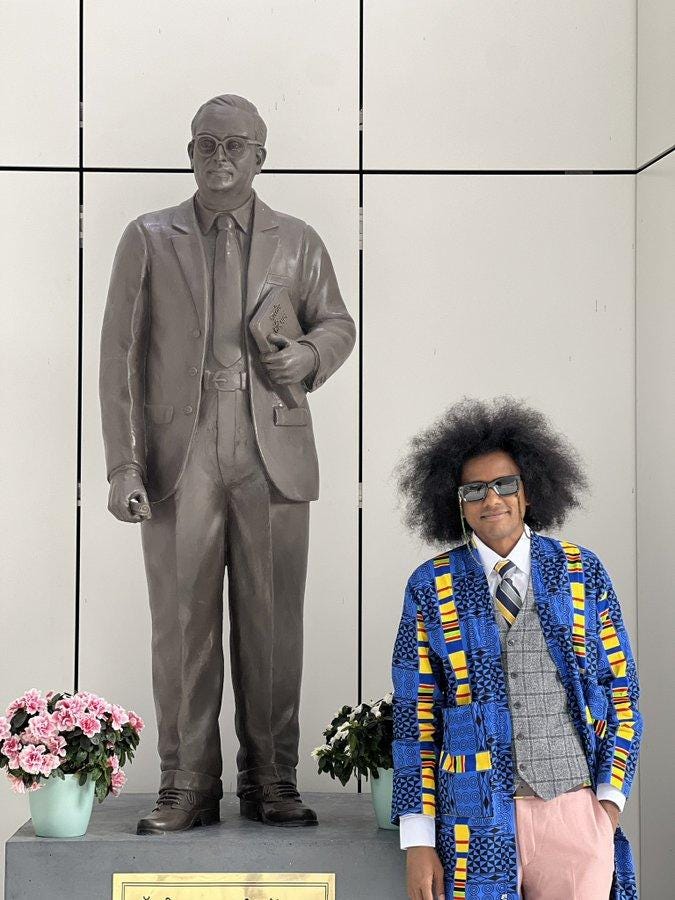

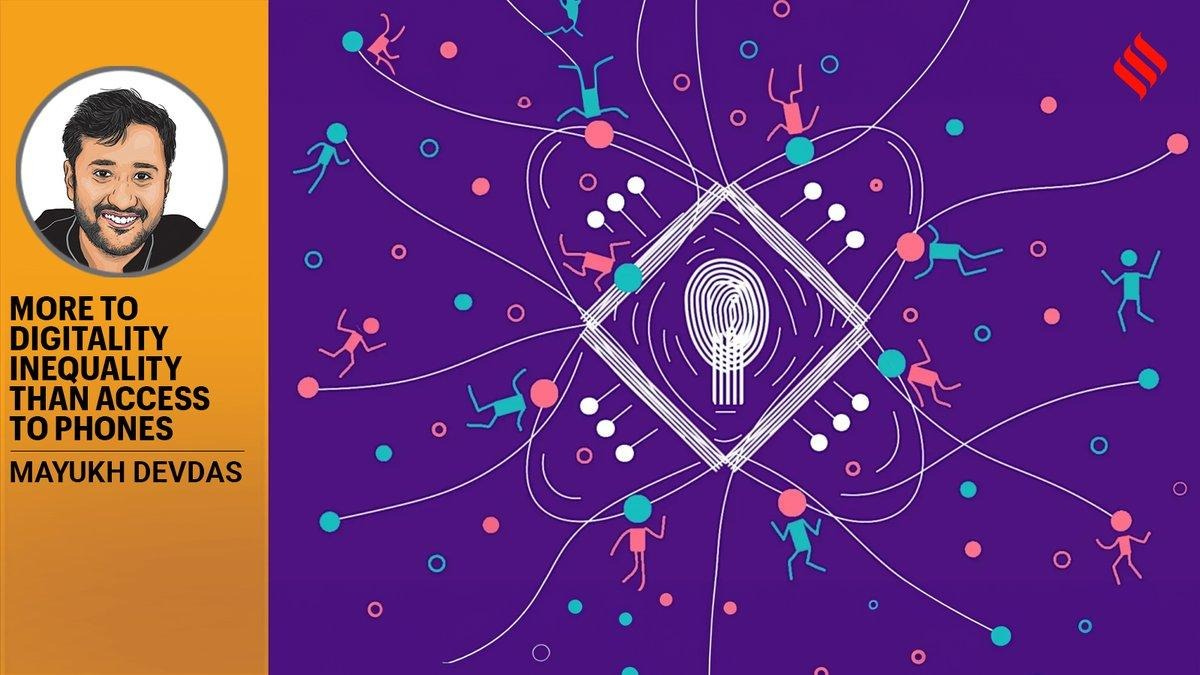
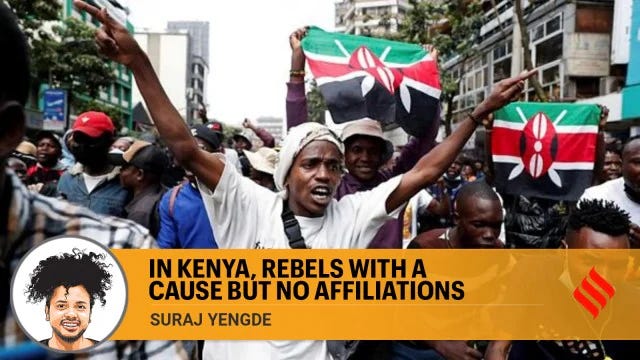

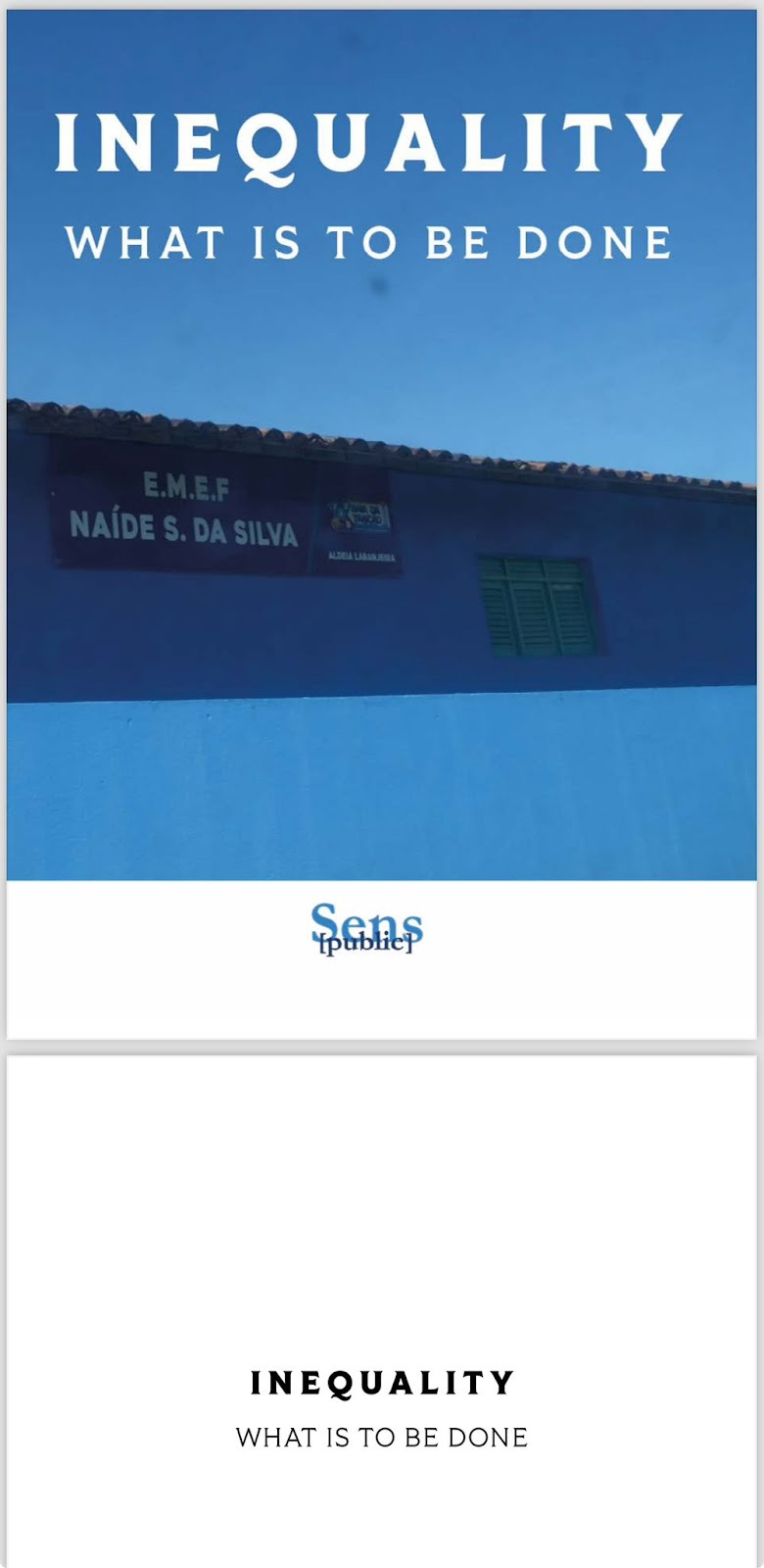
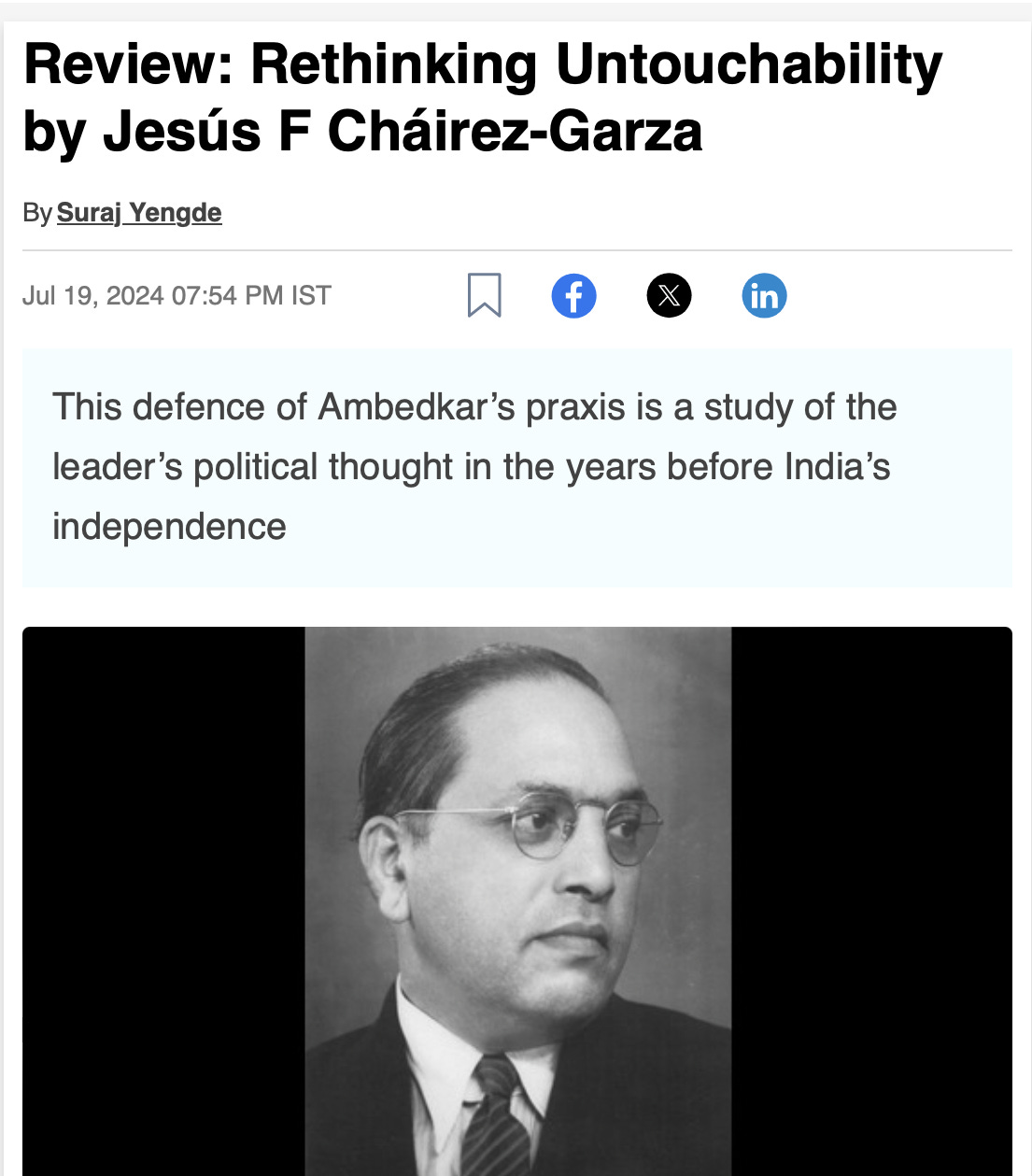


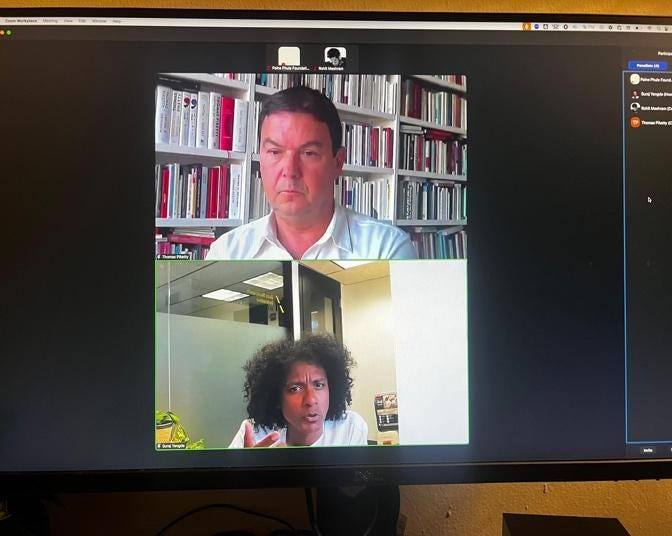


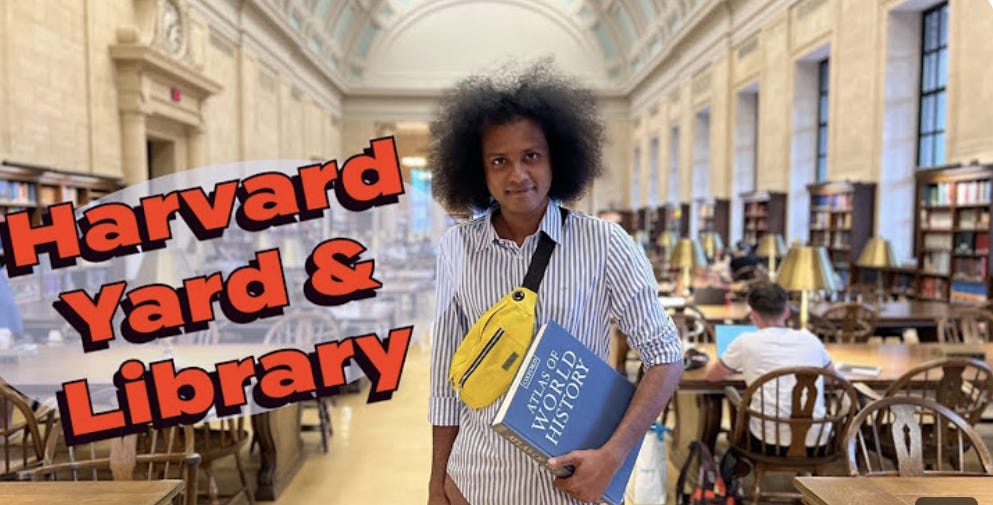
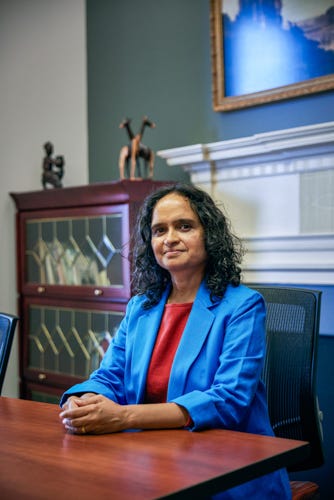


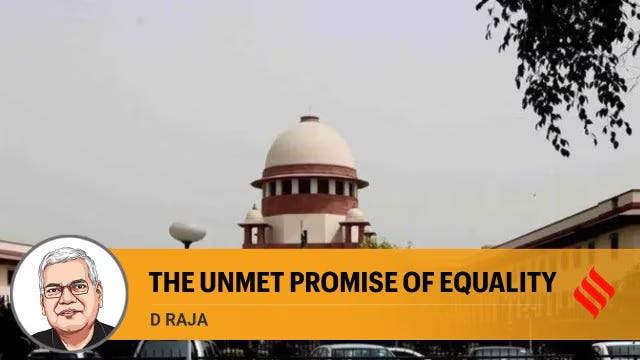


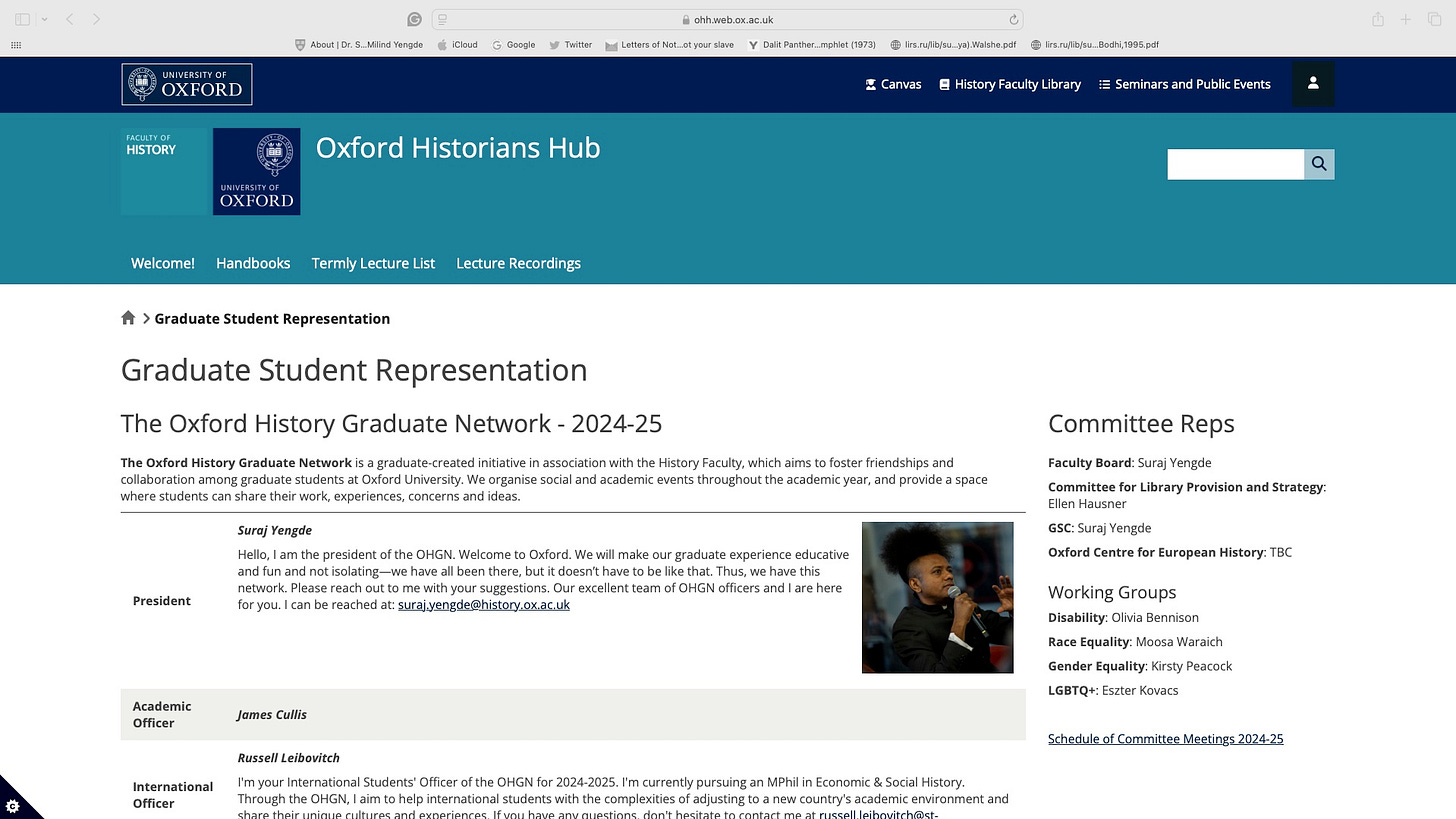
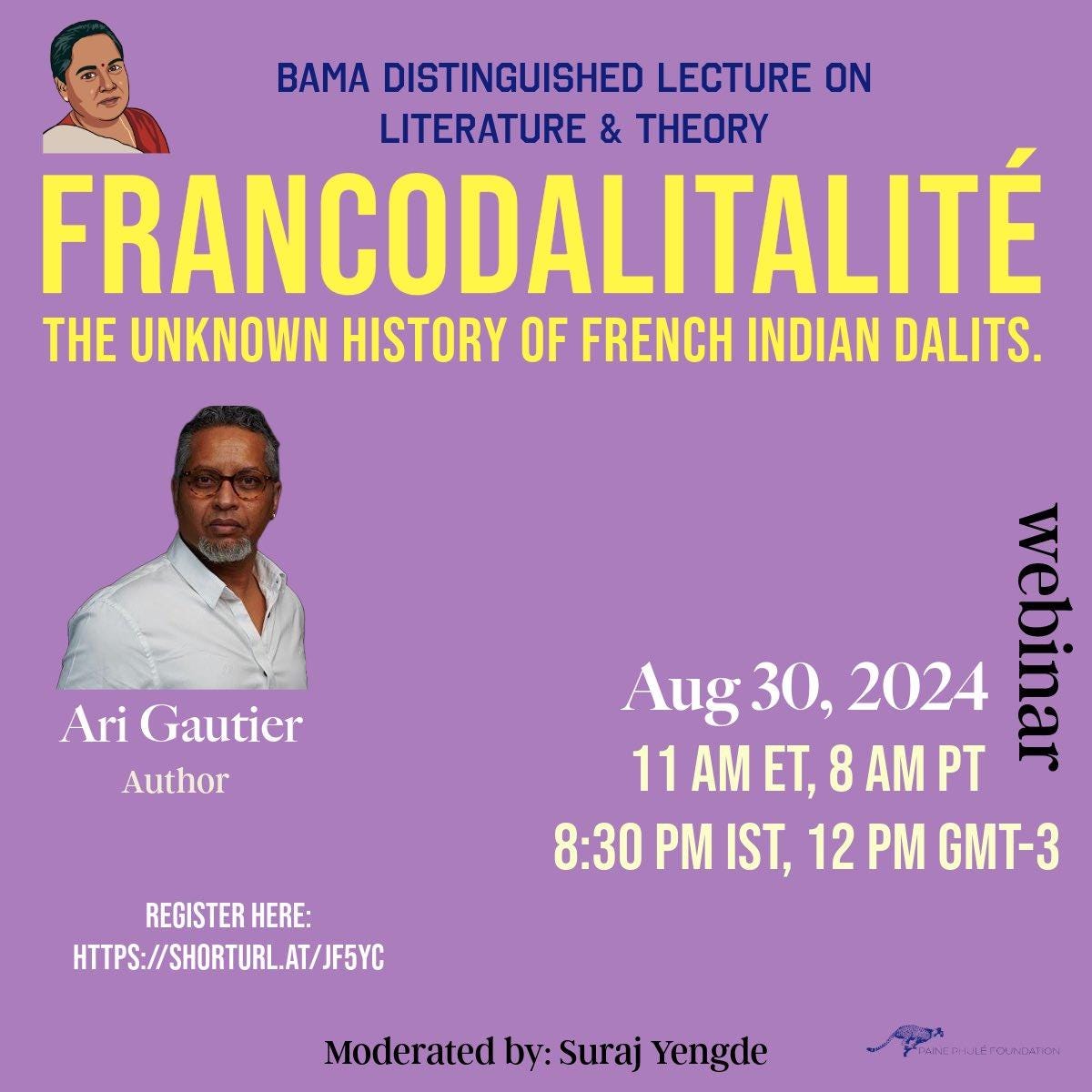

Beautiful work! 🥰
Wonderful write up...👍👌